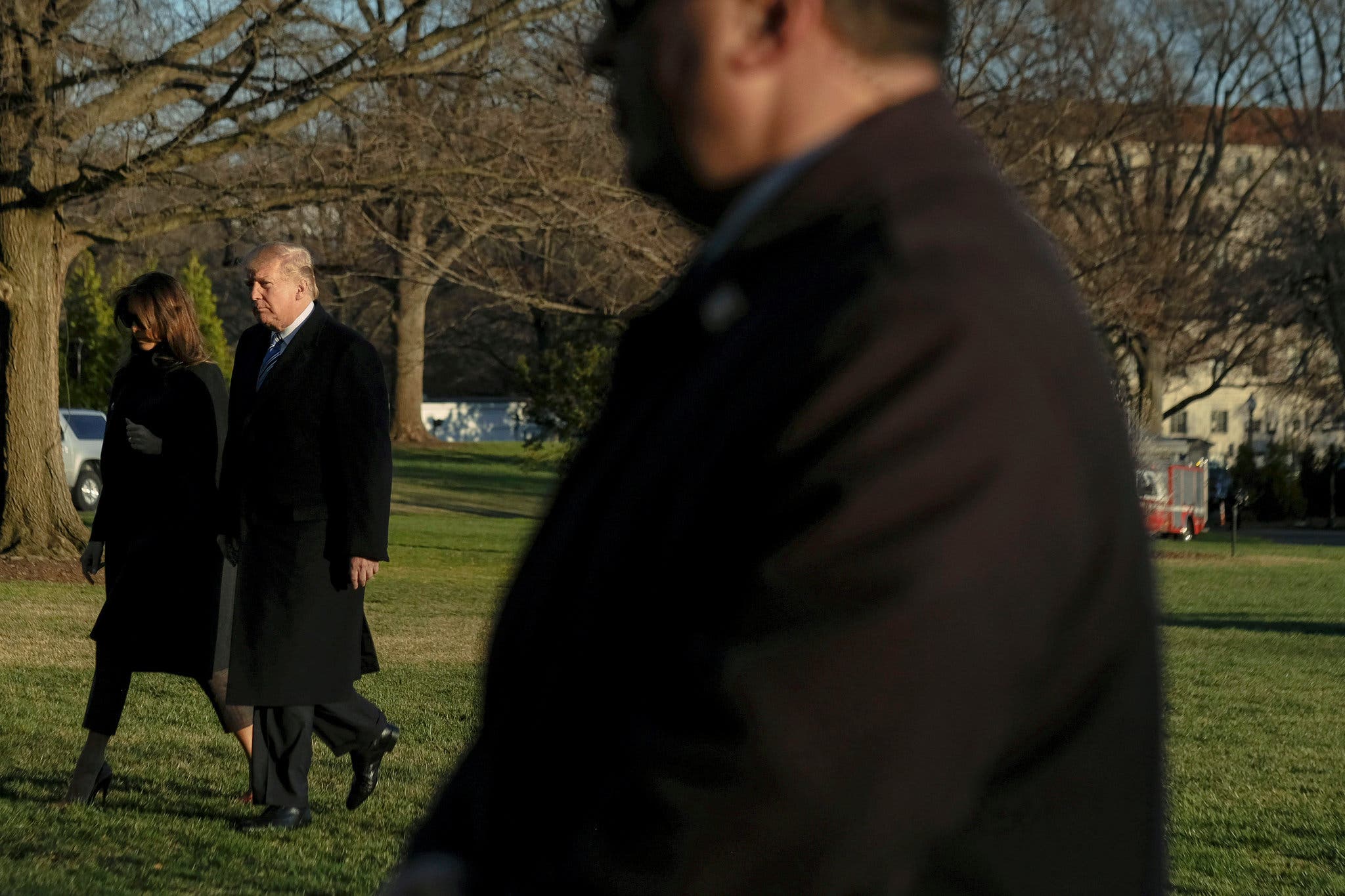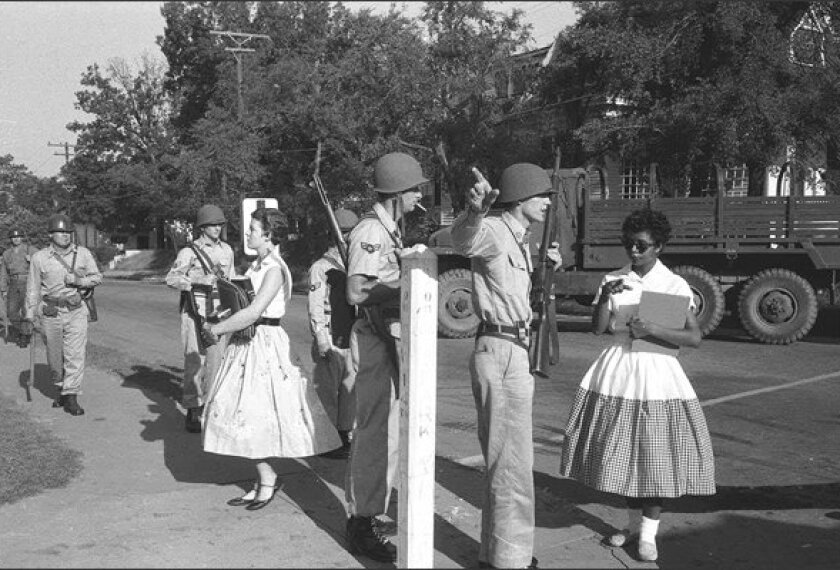Trump's Tariff Policy Faces Judicial Scrutiny

Table of Contents
Constitutional Challenges to Trump's Tariff Authority
The core of the legal challenges lies in the constitutional limits on presidential power regarding trade. Critics argue that Trump's tariff policy overstepped these boundaries.
The Scope of Presidential Power in Trade
Legal arguments center on the President's authority to impose tariffs under various statutes, primarily Section 301 of the Trade Act of 1974 and the Trade Expansion Act of 1962. These acts grant the President certain powers in trade negotiations and responses to unfair trade practices, but the extent of these powers remains a subject of debate.
- Cases Challenging Authority: Several lawsuits have directly challenged the legality of specific tariffs imposed under Trump's administration, arguing that the President exceeded his authority under these statutes. These cases often cite precedents that limit executive power in areas impacting domestic industries and international relations.
- Legal Precedents: Plaintiffs often point to past Supreme Court rulings emphasizing the importance of Congressional oversight in matters of international trade. Defendants, conversely, emphasize the President’s role as chief negotiator in international trade and the need for executive flexibility to respond to rapidly changing global economic conditions.
- Arguments: Plaintiffs contend that Trump's tariffs were not based on legitimate national security concerns or unfair trade practices as required by law, but rather were politically motivated actions with significant economic repercussions. Defendants argue that the President acted within his statutory authority to protect American industries from unfair competition.
Due Process Concerns
Beyond the question of presidential authority, lawsuits also raise concerns about due process for businesses affected by the tariffs. The rapid implementation and broad scope of the tariffs left many businesses feeling they lacked adequate opportunity to challenge their imposition.
- Affected Industries: Industries like steel, aluminum, and solar energy experienced significant impacts, with many businesses facing increased input costs and reduced competitiveness.
- Arguments Regarding Fair Notice: Plaintiffs argue that the lack of transparent criteria and processes for imposing tariffs violated their due process rights under the Fifth Amendment. They claim they were denied fair notice and an opportunity to be heard before facing significant economic hardship.
Economic Impacts and Related Lawsuits
Trump's tariff policy didn't just generate legal challenges; it also spurred economic repercussions, leading to further litigation.
Allegations of Harm to American Businesses and Consumers
Numerous lawsuits allege that Trump's tariffs caused substantial economic harm to American businesses and consumers. These lawsuits seek compensation for losses stemming from increased prices, reduced sales, and job losses.
- Negatively Impacted Industries: Businesses across numerous sectors, from agriculture to manufacturing, suffered negative consequences due to retaliatory tariffs imposed by other countries and increased input costs.
- Quantifiable Economic Data: Lawsuits often include detailed economic data showing the impact of the tariffs on sales, profits, employment, and consumer prices. These data points aim to quantify the claimed economic injury.
- Types of Damages Sought: Plaintiffs seek various forms of damages, including monetary compensation for lost profits, investment losses, and job displacement.
WTO Disputes and Legal Ramifications
The international ramifications of Trump's tariff policy led to disputes within the World Trade Organization (WTO). These disputes, and their resulting rulings, further fuel the ongoing legal scrutiny.
- WTO Rulings: The WTO found against the US in several cases, concluding that certain tariffs violated international trade rules. These rulings further strengthened the arguments of plaintiffs who had already challenged the tariffs domestically.
- Retaliatory Tariffs: Other countries retaliated against the US tariffs by imposing their own tariffs, creating a complex web of trade disputes and economic disruptions.
- Implications for International Trade Relations: The actions and rulings have damaged the integrity of the WTO's dispute settlement system and strained the US's relationships with key trading partners.
The Long-Term Implications of Judicial Decisions
The ongoing judicial scrutiny of Trump's tariff policy will have lasting implications for the future of trade and the rule of law in the United States.
Impact on Future Trade Policy
Judicial decisions on the legality and scope of Trump’s tariffs will profoundly impact how future administrations utilize tariffs as a trade tool.
- Potential Legislative Changes: Congress might respond by clarifying or amending existing statutes to define more precisely the President's trade authority, potentially limiting future executive action.
- Implications for US Trade Negotiations: The rulings could alter how the US negotiates future trade agreements, influencing the leverage it possesses in these discussions.
- Impact on Global Trade Governance: The ongoing legal challenges could impact the global trade governance structure and the role of international trade organizations like the WTO.
Repercussions for the Rule of Law
The legal challenges to Trump's tariff policy raise broader concerns about executive overreach and the rule of law.
- Arguments Concerning Executive Overreach: Critics argue that Trump's tariffs demonstrated an excessive concentration of power in the executive branch, potentially undermining the system of checks and balances.
- Implications for Checks and Balances: The judicial review of these policies highlights the critical role of the judiciary in ensuring that the executive branch operates within its constitutional and statutory boundaries.
- Impact on Public Trust: The protracted legal battles and economic consequences of the tariff policy have eroded public trust in the government’s ability to manage trade effectively and fairly.
Conclusion
The legal battles surrounding Trump's tariff policy are far from over. These challenges raise fundamental questions about presidential authority, due process, economic impact, and the rule of law. The outcomes of these cases will not only shape future trade policies but also have significant implications for the balance of power within the American government and its relationships in the global trading system. Staying informed about these crucial developments is vital to understanding the future of American trade policy. Continue to follow updates on the ongoing judicial scrutiny of Trump's tariff policy to understand its lasting impact on the US and global economy.

Featured Posts
-
 Eco Flow Wave 3 Portable Ac Heater A Comprehensive Review
May 02, 2025
Eco Flow Wave 3 Portable Ac Heater A Comprehensive Review
May 02, 2025 -
 Fortnite Update V34 30 Sabrina Carpenter Collaboration Gameplay Changes And Downtime
May 02, 2025
Fortnite Update V34 30 Sabrina Carpenter Collaboration Gameplay Changes And Downtime
May 02, 2025 -
 Colorado Faces No 9 Texas Tech Toppins Performance A Key Factor
May 02, 2025
Colorado Faces No 9 Texas Tech Toppins Performance A Key Factor
May 02, 2025 -
 School Desegregation The End Of An Era Analysis Of The Dojs Decision
May 02, 2025
School Desegregation The End Of An Era Analysis Of The Dojs Decision
May 02, 2025 -
 Understanding Xrp Functionality Use Cases And Future Potential
May 02, 2025
Understanding Xrp Functionality Use Cases And Future Potential
May 02, 2025
